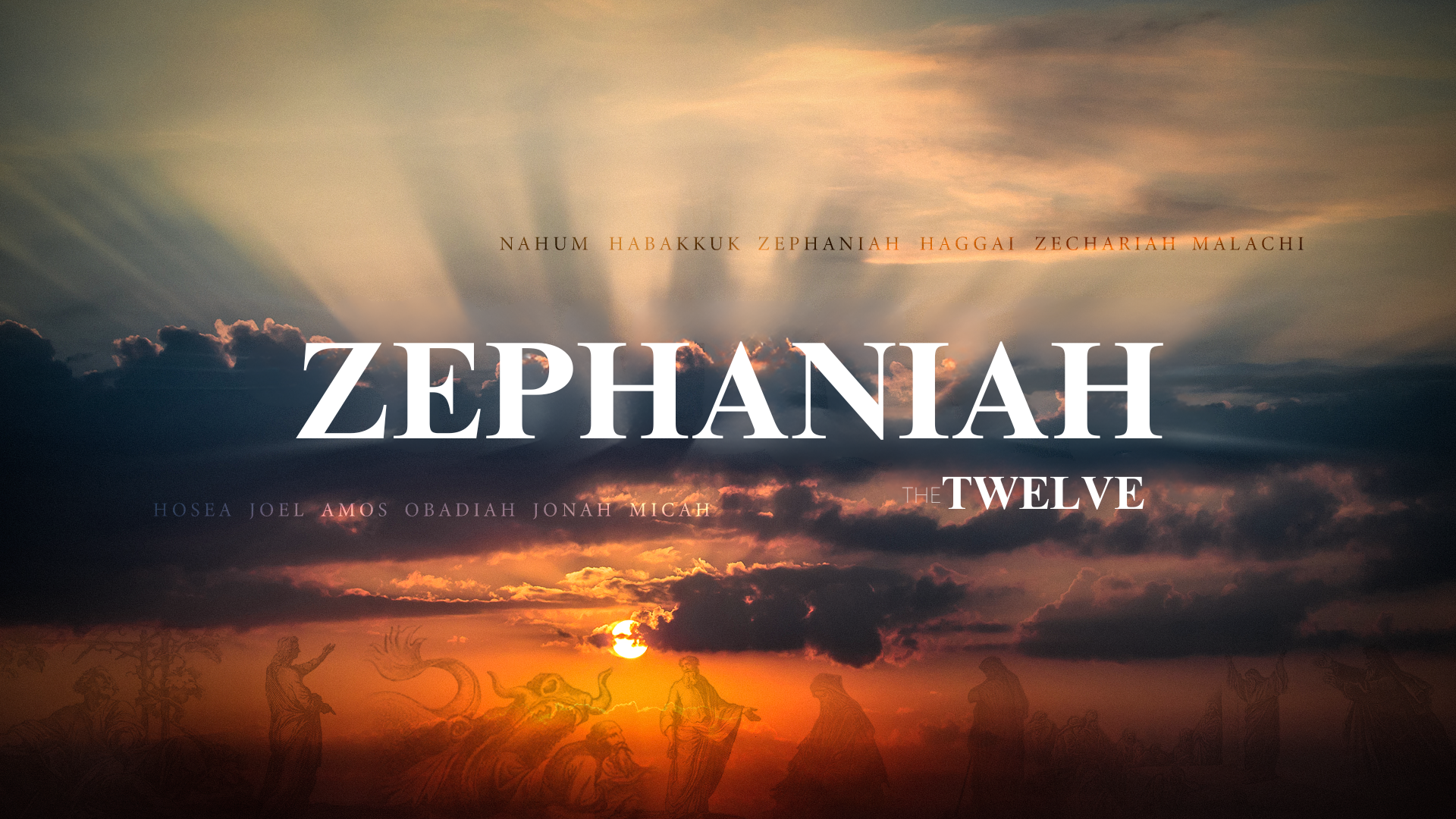Zephaniah | The coming Day of the Lord
Zephaniah Overview
The Book of Zephaniah is a brief but powerful prophetic message found in the Old Testament, consisting of three chapters that present a sobering warning of judgment followed by a hopeful promise of restoration. Zephaniah, a prophet from the royal line of Judah, ministered during the reign of King Josiah (640–609 B.C.), a time of significant religious reform but also lingering idolatry and social corruption. His prophecy focuses on the "Day of the Lord," a central theme that encompasses both God's righteous judgment and His future redemption.
Historical Context
Zephaniah’s ministry likely occurred before Josiah's religious reforms took full effect, during a time when Judah was steeped in idolatry, corruption, and moral decline. Assyria, the dominant power of the previous century, was weakening, and Babylon had not yet risen to full prominence. The nation of Judah was enjoying a time of relative peace and prosperity, but spiritually, the people were far from God.
Zephaniah’s message is both a wake-up call and a promise. It warns of the consequences of continued rebellion but offers hope to those who humble themselves and return to the Lord.
Structure and Summary
The Book of Zephaniah can be divided into three main sections:
- Chapter 1: The Coming Judgment on Judah and the Nations
- Chapter 2: A Call to Repentance and Judgment on Surrounding Nations
- Chapter 3: Restoration, Joy, and the Future of God’s People
Chapter 1: The Day of the Lord Is Near
The book begins with a sweeping pronouncement of judgment: “I will sweep away everything from the face of the earth,” declares the Lord (Zephaniah 1:2). This dramatic opening introduces the theme of the “Day of the Lord,” a time of divine intervention in human affairs for judgment and purification.
Zephaniah focuses first on Judah, condemning its idolatry, religious syncretism, and complacency. The people worshiped the Lord but also bowed to foreign gods like Baal and the stars of the heavens. Some were completely indifferent, saying in their hearts, “The Lord will do nothing, either good or bad” (1:12).
The chapter ends with a vivid description of the Day of the Lord—a day of wrath, distress, anguish, ruin, and darkness. It is meant to shake the people out of their spiritual slumber and lead them to repentance.
Chapter 2: A Call to Seek the Lord
In the face of coming judgment, Zephaniah offers a plea: “Seek the Lord, all you humble of the land… Seek righteousness, seek humility” (2:3). This call to repentance is a lifeline. God desires not destruction but return and renewal. The humble, those who trust in God and live righteously, may be sheltered on the Day of the Lord.
The chapter then broadens its focus to include surrounding nations—Philistia, Moab, Ammon, Cush, and Assyria—demonstrating that God’s justice is not limited to Judah. All nations are accountable to Him. The judgment is comprehensive, reminding readers that no one can escape the sovereignty and holiness of God.
Nineveh, the capital of Assyria, is singled out for its pride and arrogance. Though once powerful and feared, it will become desolate and empty—an object lesson in the fall of empires that defy God.
Chapter 3: From Judgment to Joy
Zephaniah 3 shifts focus again—back to Jerusalem—and begins with another pronouncement of judgment. The city is rebellious, defiled, and oppressive. Its leaders are corrupt, its prophets arrogant, and its priests profane. Despite God's continual efforts to correct and restore His people, they have remained stubborn.
But then the tone changes dramatically. In verses 9–20, Zephaniah moves from condemnation to consolation. God promises to purify the lips of the peoples so they may call on His name together and serve Him shoulder to shoulder. The nations, once judged, will also be redeemed.
For the faithful remnant in Israel, there is a promise of restoration. The proud will be removed, and the humble will inherit God's blessings. God will live among His people, and Jerusalem will be a place of joy, safety, and praise.
The book ends on an incredibly uplifting note:
“The Lord your God is with you, the Mighty Warrior who saves. He will take great delight in you; in His love He will no longer rebuke you, but will rejoice over you with singing” (Zephaniah 3:17).
This beautiful image of God singing over His people highlights the depth of His love and the joy of redemption.
Key Themes
- The Day of the Lord – A central theme, representing God's judgment on sin but also His power to save and renew.
- Judgment and Justice – God holds all nations, including His own people, accountable for sin and rebellion.
- Repentance and Humility – God calls the humble to seek Him and promises protection and restoration to those who do.
- Hope and Restoration – Though judgment is certain, God’s ultimate desire is to restore His people and dwell with them in joy and peace.
- God’s Sovereignty – Zephaniah reminds readers that God reigns over all nations and history, and His plans will come to pass.
Conclusion
The Book of Zephaniah may be short, but its message is profound. It begins with dire warnings of judgment and ends with beautiful promises of restoration. Zephaniah invites all people—then and now—to turn from pride and rebellion, to seek the Lord with humility, and to find hope in the God who not only judges sin but delights to save and sing over His people.


